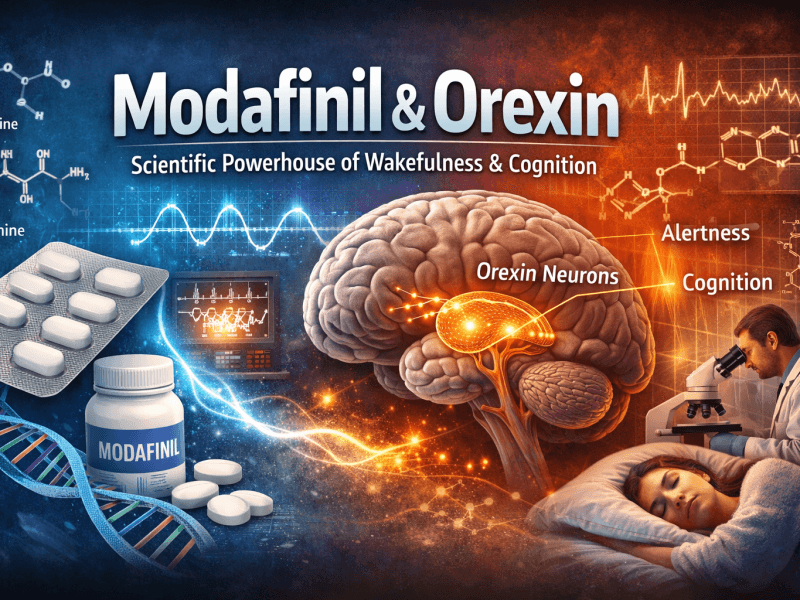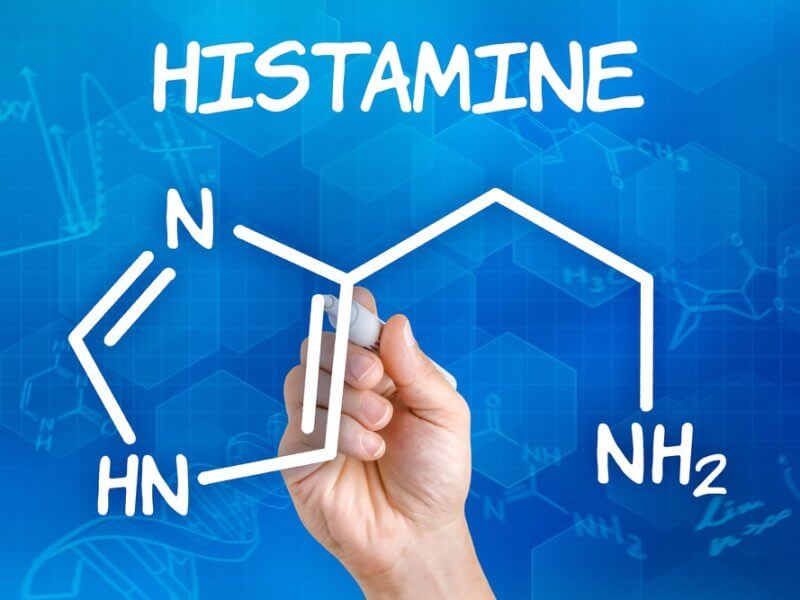Last Updated on 15/09/2025 by James Anderson
Does Modafinil Help Fight Fatigue in Rheumatoid Arthritis?
Rheumatoid arthritis (RA) is a chronic autoimmune disease that causes joint inflammation and pain. A commonly overlooked symptom of RA is fatigue, which can be debilitating and significantly impact a person’s quality of life. If you’re living with RA, you may have wondered whether there are treatments that can help manage this type of fatigue. One possible solution that has emerged is Modafinil, a medication typically prescribed for narcolepsy and other sleep disorders. But could it be effective in managing fatigue caused by RA? In this article, we’ll explore how Modafinil works, its potential benefits for RA fatigue, and what other strategies you can use to combat energy loss.
Understanding Rheumatoid Arthritis and Fatigue
Common Symptoms of Rheumatoid Arthritis
Rheumatoid arthritis is a condition where the body’s immune system mistakenly attacks the joints, leading to inflammation, pain, and stiffness. Beyond the physical symptoms, individuals with RA often experience fatigue, a pervasive and chronic tiredness that is not relieved by rest. This fatigue can be one of the most challenging aspects of living with RA, affecting daily activities and mental well-being.
How Fatigue Affects People with RA
RA-related fatigue is different from regular tiredness; it is profound, persistent, and often unrelenting. It can interfere with a person’s ability to work, care for themselves, and engage in social or physical activities. The exact cause of this fatigue remains unclear, but it’s believed to be related to both the physical burden of the disease (e.g., inflammation and pain) and the emotional strain of coping with a chronic illness.
What is Modafinil?
The Mechanism of Modafinil
Modafinil is a medication known for its wakefulness-promoting properties. It is typically prescribed for conditions that cause excessive daytime sleepiness, such as narcolepsy and sleep apnea. The drug works by altering the balance of certain neurotransmitters in the brain, including dopamine, which helps increase alertness and energy levels.
Primary Uses of Modafinil
While Modafinil is mainly used to treat sleep disorders, it has also gained popularity as a cognitive enhancer, with some individuals using it off-label to improve focus and mental clarity. Researchers have started to investigate its potential uses beyond sleep disorders, particularly for individuals suffering from chronic fatigue due to various conditions, including RA.
Can Modafinil Be Used for Fatigue in RA?
Scientific Studies on Modafinil and RA Fatigue
There is limited but promising research exploring the role of Modafinil in treating fatigue associated with chronic conditions like RA. Some studies suggest that Modafinil may help reduce fatigue in people with conditions such as multiple sclerosis and fibromyalgia, so it’s possible that it could benefit those with RA as well. However, more research is needed to confirm its effectiveness specifically for RA-related fatigue.
Benefits of Modafinil for People with RA
For people with RA, managing fatigue is as important as controlling pain and inflammation. Modafinil could provide temporary relief by enhancing wakefulness, increasing energy, and potentially improving overall quality of life. In particular, it might be helpful for individuals who struggle with excessive tiredness that is not fully addressed by traditional RA treatments.
Risks and Side Effects of Modafinil
Common Side Effects
While Modafinil is generally well-tolerated, it is not without its risks. Common side effects include headaches, nausea, dizziness, and anxiety. These side effects can be bothersome and may make the drug unsuitable for some individuals. It’s essential to consult with a healthcare provider before starting Modafinil to ensure it’s the right choice for managing RA-related fatigue.
How Modafinil Interacts with Other Medications
Many individuals with RA are on medications like methotrexate, biologics, or steroids to manage inflammation. Modafinil may interact with these drugs, potentially affecting their efficacy or increasing the risk of side effects. Always discuss potential drug interactions with your doctor before adding Modafinil to your treatment regimen.
Non-Pharmacological Ways to Combat Fatigue in RA
While Modafinil may offer some relief, it’s not the only strategy for managing RA-related fatigue. A multi-faceted approach, including lifestyle changes, proper nutrition, exercise, and stress management, can be highly effective in improving energy levels.
Diet and Nutrition Tips for RA Fatigue
Certain foods can help reduce inflammation and support energy production. Omega-3 fatty acids, antioxidants, and whole grains should be prioritized in the diet. Avoiding processed foods, sugars, and trans fats can also help manage inflammation, potentially reducing the fatigue associated with RA.
Exercise and Physical Activity
Physical activity, despite being challenging for many RA patients, is one of the best ways to combat fatigue. Regular, low-impact exercises like swimming, walking, or yoga can improve joint mobility, reduce pain, and enhance energy levels. Always consult a physical therapist to tailor an exercise plan that suits your condition.
Rest and Sleep Hygiene
Ensuring that you get enough quality sleep is crucial in managing RA fatigue. Proper sleep hygiene practices, such as maintaining a consistent sleep schedule and creating a calm sleep environment, can improve sleep quality and overall energy levels.
Stress Management Techniques
Chronic stress can exacerbate fatigue and pain in RA patients. Mindfulness, meditation, and relaxation exercises can help reduce stress and promote better sleep, further alleviating fatigue.
FAQ
- Can Modafinil be prescribed for RA-related fatigue?
While Modafinil is not officially approved for RA fatigue, doctors may consider it an off-label option if other treatments are ineffective. - What are the side effects of using Modafinil?
Common side effects include headaches, nausea, dizziness, and anxiety. Consult your doctor if you experience any adverse effects. - How long does Modafinil last in the body?
Modafinil typically lasts between 10 to 12 hours, providing sustained wakefulness and alertness throughout the day.
‼️ Disclaimer: The information provided in this article about modafinil is intended for informational purposes only and is not a substitute for professional medical consultation or recommendations. The author of the article are not responsible for any errors, omissions, or actions based on the information provided.
References:
- U.S. Food and Drug Administration. PROVIGIL. U.S. Department of Health and Human Services. https://www.accessdata.fda.gov/drugsatfda_docs/label/2015/020717s037s038lbl.pdf . 2015
- Ballon JS, Feifel D. A systematic review of modafinil: potential clinical uses and mechanisms of action. J Clin Psychiatry. 2006
- Willavize, S. A., Nichols, A. I., & Lee, J. Population pharmacokinetic modeling of armodafinil and its major metabolites. https://doi.org/10.1002/jcph.800 . 2016
- Fuxe K, et al. Modafinil enhances the increase of extracellular serotonin levels induced by the antidepressant drugs fluoxetine and imipramine: a dual probe microdialysis study in awake rat. Synapse. 2005
- Mechanisms of modafinil: A review of current research. nih.gov. 2007
- PROVIGIL (modafinil) Tablets. FDA.GOV. 2010
- Oliva Ramirez A, Keenan A, Kalau O, Worthington E, Cohen L, Singh S. Prevalence and burden of multiple sclerosis-related fatigue: a systematic literature review. https://doi.org/10.1186/s12883-021-02396-1 . 2021.
- Ciancio A, Moretti MC, Natale A, Rodolico A, Signorelli MS, Petralia A. Personality Traits and Fatigue in Multiple Sclerosis: A Narrative Review. Journal of Clinical Medicine. https://doi.org/10.3390/jcm12134518 . 2023
- Mereu, M., Bonci, A., Newman, A. H., & Tanda, G. The neurobiology of modafinil as an enhancer of cognitive performance and a potential treatment for substance use disorders. https://doi.org/10.1007/s00213-013-3232-4 . 2013


